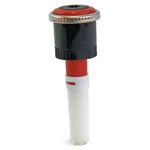Hi GPODers!
We get so many very special submissions on Garden Photo of the Day, but this one particularly so. As evident by the title, the subject matter in this post is a little heavy and I want to give a very light disclaimer. This post focuses on the gardens, but does mention hospice care and the ways patients, families, and staff are able to utilize these amazing spaces. As someone who recently experienced loss and is a little extra emotional, reading this submission definitely brought a tear to my eye. If you usually read GPOD at work, use your discretion if you’d like to finish this post at a different time. With that out of the way, I will let Barb Young, owner of The Big Little Garden, take it from here.
Greetings! I co-lead a large team of dedicated volunteers who steward about 30 individual garden beds throughout the Community Hospice House (CHH) property in Merrimack, NH. The CHH gardens are integral to the patient/family/caregiver experience, providing comfort and solace during difficult times.
Community Hospice House is dedicated to helping people find a peaceful and dignified end to their life’s journey. It is part of Home Health & Hospice Care of NH, a not-for-profit organization. Spacious patient rooms accommodate families, and even visits from family pets, to comfort patients in their final weeks and days. Each room opens to a private patio with views of the extensive gardens that are lovingly tended by dedicated volunteers.
Views from surrounding patient rooms and patios, common spaces and the outdoor courtyard are carefully considered as gardens are designed. The completion of a six room wing in 2023 and the addition of new gardens, gave us the opportunity to increase the landscape’s palette of color, texture and form. Gardens are connected with paths that reveal unique and highly textural gardens with every turn.
Our intention is to promote biodiversity and support local wildlife while building upon the beauty of the original gardens, planted in 2000. The new gardens were designed with an emphasis on New England native plants and non-native pollinator plants that would complement the original gardens. The results are extensive ornamental gardens with a decidedly naturalistic flair.
Bulbs begin the show
 After completion of construction in October 2023, volunteers planted more than 2,000 bulbs. A profusion of miniature daffodils, wildflower tulips and allium welcomed patients, families and staff on the approach to the facility’s entrance this spring.
After completion of construction in October 2023, volunteers planted more than 2,000 bulbs. A profusion of miniature daffodils, wildflower tulips and allium welcomed patients, families and staff on the approach to the facility’s entrance this spring.
 |
 |
Spring bulbs give way to densely planted perennial gardens
 Immersive pollinator gardens come to life in late May and early June with a profusion of bloom from yarrow, penstemon and lilies. Benches are placed throughout the gardens, providing family members a quiet space for reflection.
Immersive pollinator gardens come to life in late May and early June with a profusion of bloom from yarrow, penstemon and lilies. Benches are placed throughout the gardens, providing family members a quiet space for reflection.
 In May, 2024 volunteers removed a jumble of invasive groundcovers and perennials to make room for a newly conceived ‘Tranquility Garden’. Viewed from patient rooms and patios as well as from a common indoor space, the garden features a 1400 pound ‘Hindu-Pan’ Scotch pine (Pinus contorta ‘Hindu Pan’, Zones 3–7).
In May, 2024 volunteers removed a jumble of invasive groundcovers and perennials to make room for a newly conceived ‘Tranquility Garden’. Viewed from patient rooms and patios as well as from a common indoor space, the garden features a 1400 pound ‘Hindu-Pan’ Scotch pine (Pinus contorta ‘Hindu Pan’, Zones 3–7).
The stately tree is underplanted with Japanese forest grass (Hakonechloa macra, Zones 5–9), foamflower (Tiarella cordifolia, Zones 3–8), cardinal flower (Lobelia cardinalis, Zones 3–9) and Solomon’s seal (Polygonatum humile, Zones 5–8). Complementary shrubs are strategically planted to anchor the space, including native beautyberry (Callicarpa americana, Zones 6–10) and clethra as well as a small weeping Japanese maple. Large goshen stones were placed to serve as both a visual and physical welcome for visitors to explore the space. The tree is under the care of a master arborist who will control its shape and size.
 A shady ‘Remembrance Garden’ is a tapestry of annuals and perennials that soften memorial stones honoring the lives of former residents. It is frequented by family members on their stroll through the garden paths.
A shady ‘Remembrance Garden’ is a tapestry of annuals and perennials that soften memorial stones honoring the lives of former residents. It is frequented by family members on their stroll through the garden paths.
Summer abundance
 |
 |
By late summer, the borders have become a romp of native grasses, tall verbena (Verbena bonariensis, Zones 7–10), agastache, salvia, gaura, allium, and more. Stately Joe Pye weed (Eutrochium purpureum, Zones 3–9), caryopteris, goldenrod and rudbeckia create a living privacy screen for multiple patient patios.
 A river birch (Betula nigra, Zones 4–9) is under planted with ‘Firetail’ persicaria (Persicaria amplexicaulis ‘Firetail’, Zones 4–9),‘Blue Fortune’ agastache (Agastache ‘Blue Fortune’, Zones 5–9), narrow-leaved sunflower (Helianthus angustifolius, Zones 5–9), calamint (Calamintha nepeta ssp. nepeta, Zones 4–7), asclepias, echinacea, asters and grasses with views to the meadow beyond. Centrally located, this garden is the cornerstone for pollinator activity, supporting insect habitats throughout dozens of neighboring CHH gardens.
A river birch (Betula nigra, Zones 4–9) is under planted with ‘Firetail’ persicaria (Persicaria amplexicaulis ‘Firetail’, Zones 4–9),‘Blue Fortune’ agastache (Agastache ‘Blue Fortune’, Zones 5–9), narrow-leaved sunflower (Helianthus angustifolius, Zones 5–9), calamint (Calamintha nepeta ssp. nepeta, Zones 4–7), asclepias, echinacea, asters and grasses with views to the meadow beyond. Centrally located, this garden is the cornerstone for pollinator activity, supporting insect habitats throughout dozens of neighboring CHH gardens.
 Pollinators remain quite active all through the month of October. Dahlias, annuals and tender perennials will be lifted and stored for the winter. All remaining perennials and grasses will be left to stand throughout the winter months, providing structural beauty and habitat for beneficial insects and seed heads for songbirds.
Pollinators remain quite active all through the month of October. Dahlias, annuals and tender perennials will be lifted and stored for the winter. All remaining perennials and grasses will be left to stand throughout the winter months, providing structural beauty and habitat for beneficial insects and seed heads for songbirds.
The Community Hospice House gardens have evolved significantly this year with plans to promote a naturalistic meadow and bioswale in 2025.
The gardens offer comfort and solace to visitors as well as to our extensive team of volunteers as we tend to our gardening duties. We are proud of the gardens and pleased to be entrusted with their care.
Thank you so much for sharing these incredible gardens, Barb. I’m sure everyone in the GPOD community knows of the healing benefits of gardens and gardening, but this puts it in a whole perspective.
Have a garden you’d like to share?
Have photos to share? We’d love to see your garden, a particular collection of plants you love, or a wonderful garden you had the chance to visit!
To submit, send 5-10 photos to [email protected] along with some information about the plants in the pictures and where you took the photos. We’d love to hear where you are located, how long you’ve been gardening, successes you are proud of, failures you learned from, hopes for the future, favorite plants, or funny stories from your garden.
Have a mobile phone? Tag your photos on Facebook, Instagram or Twitter with #FineGardening!
Do you receive the GPOD by email yet? Sign up here.
Fine Gardening Recommended Products

XLUX Soil Moisture Meter
– Large and clear dial, including ten scales, plug and read
– Simply insert the moisture meter into soil and you’ll get the test result instantly
– Single probe, less hurts to the roots, doesn’t dig up too much soil after test

Nelson Multi-Pattern Stationary Sprinkler
– 8 Pre-Set Watering Patterns
– Impact-resistant, plastic base
– Soft grip on multi-pattern head

Hunter Industries MP-1000-90 Hunter Nozzle
– 8′ to 15′ radius with an adjustable arc of 90° to 210°, radius can be reduced by up to 25% to fit landscape needs
– Double-pop technology flushes the nozzle during start-up and shutdown to prevent clogging
– Wind-resistant, multi-directional streams provide even coverage

